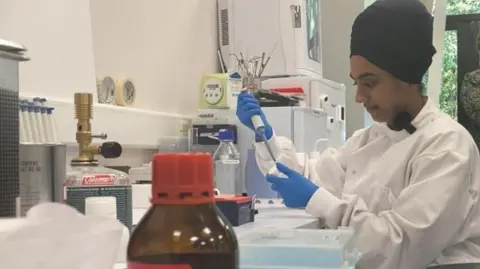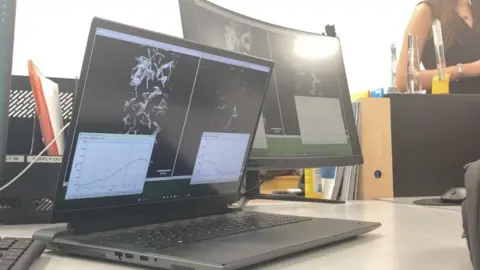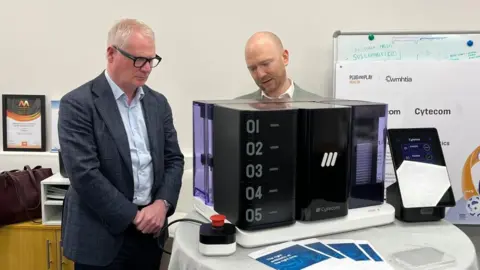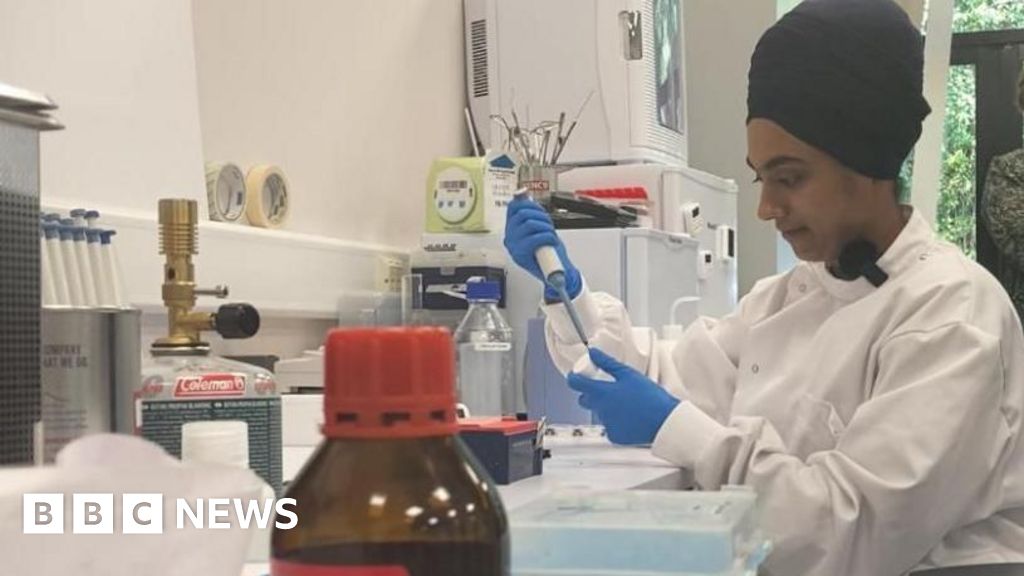BBC News, Coventry and Warwickshire
 BBC
BBCResearchers say they have developed a new technology that can help choose the right antibiotic to fight drug-resistant infections “in minutes instead of days”.
The device and process, created by Coventry-based Cytecom, is currently in pre-clinical stages and undergoing testing in collaboration with the University Hospitals of Leicester NHS Trust.
Dr Magdalena Karlikowska, CEO, said it would help doctors provide quicker care, which would be crucial to treating time-sensitive conditions, such as sepsis, “with the potential to save millions of lives”.
“Antimicrobial resistance already means longer hospital stays, higher healthcare costs, and tragically, more lives lost,” she said.
She added it could take between three-to-seven years to move from the development stage to seeing it widely available in hospitals.

Dr Karlikowska said that the current test for an antibiotic’s effectiveness was to expose the bacteria to it, then wait and see whether the bacteria was able to grow.
She said that this process of “culturing” the bacteria could take about two or three days.
However, their new diagnostic test exposes the bacteria to an antibiotic for an hour, then shocks it with electricity to see if it is still alive.
This works because a fluorescent dye causes the bacteria to light up if it has survived, utilising the natural electric charge in the cell membrane.
She added that this method had never been done before anywhere else in the world.

The company has been supported by the West Midlands Health Tech Innovation Accelerator scheme, which is backed by West Midlands Combined Authority.
This connected Cytecom with university expertise, other researchers, and potential funders.
The authority’s mayor, Richard Parker, said the health and medical technology sector contributed £6bn to the region’s economy, and employed more than 14,000 people.
He said: “This research is incredible impressive, it’s fantastic that in the West Midlands, in Coventry, we’ve got such a brilliant business which is developing leading edge medical technology.
“It’s going to have a reach globally, and it’s not just going to save lives, it’s going to inform better treatment, which will improve people’s lives too.”
Meanwhile, Dr Karlikowska said it was important to showcase that the West Midlands could also be a leader in medical technology.
“Traditionally in the UK, we’ve got the Golden Triangle, which is London, Cambridge, and Oxford, and that’s really great.
“But actually…we have to showcase the fact that we have talent here in the region too.”

